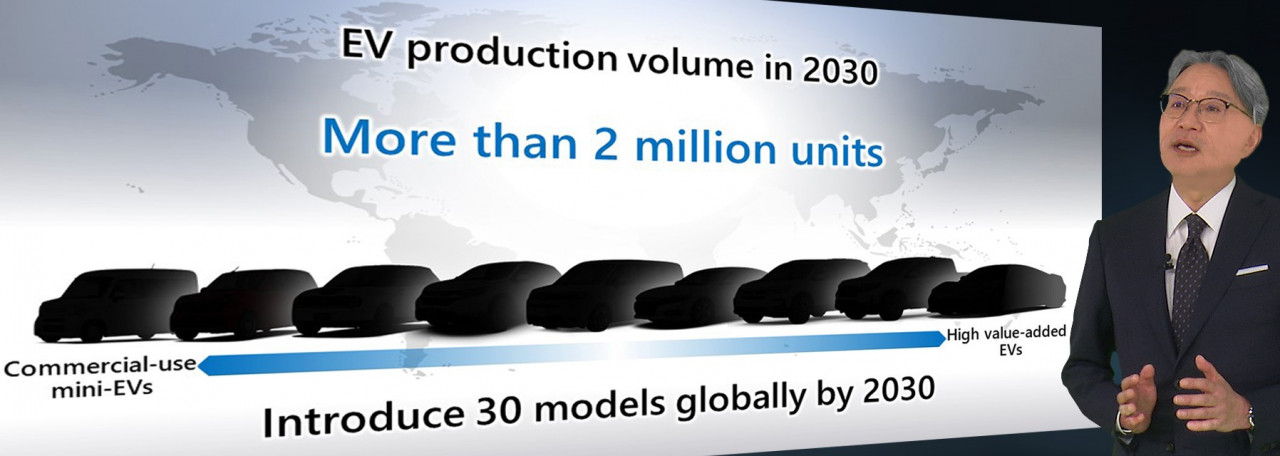Honda Motor Co., Ltd. has revealed a comprehensive strategy for electrification and business transformation for the future, touching upon a variety of aspects including investment and production targets, battery procurement strategy, the role of swappable batteries and hydrogen, connected and software technologies, organizational revamping and so on.
Over the next 10 years, Honda will allocate approximately 5 trillion yen (about $40 billion) in the area of electrification and software technologies to further accelerate its electrification targets, including both R&D expenses and other investments.
On the zero-emission front, Honda claims that a multifaceted and multidimensional approach is needed, instead of merely replacing ICE engines with batteries. The company hints at the utilization of swappable batteries and hydrogen as effective means for the electrification of automobiles, along with BEVs. It all depends on how its customers use the products in various countries and regions, says Honda.
Devising an ingenious battery procurement roadmap for the decade, Honda has said that it will ensure stable procurement of liquid lithium-ion batteries in three broad regions by strengthening the external partnership in the current period.
This includes the procurement of 'Ultium' batteries from GM in North America, while also simultaneously exploring the possibility of creating a JV company for battery production in the region. In China, Honda will further strengthen its collaboration with CATL, while in Japan, the batteries for mini-EVs will be sourced from Envision AESC.
From the second half of the 2020s, the Japanese company has vowed to accelerate its independent R&D of next-generation batteries. For the all-solid-state batteries under development, Honda decided to build a demonstration line, investing approximately 43 billion yen, to make it operational in Spring 2024.
Honda aims to adopt its next-generation batteries to models to be introduced to the market in the second half of the 2020s.
On the front of the product, the company has revealed its plans to launch about 30 EV models by 2030 for international markets, with a targeted production volume of more than 2 million units annually. From 2026 onwards, Honda will begin adopting 'Honda e' Architecture, a next-gen EV platform that combines the hardware and software platform.
It is to be noted that Honda is also planning to introduce affordable EVs in 2027 starting from North America, through its recently expanded partnership with GM.
Read More

